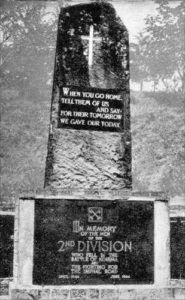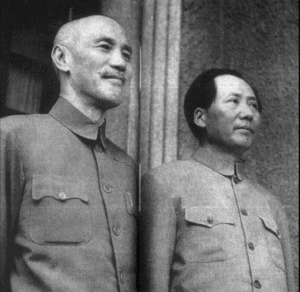To the President of the General Assembly
United Nations Headquarters, New York

Date: 08 August 2025
Excellency,
I have the honor to submit herewith, for the consideration of the General Assembly, a draft resolution entitled:
“Protection and Equal Rights of Myanmar Muslims in the Constitutional Process of Myanmar.”
This submission is made in my personal capacity as a concerned citizen and medical professional of Myanmar origin. It reflects the aspirations of Myanmar’s Muslim communities—communities that have long been part of the nation’s fabric, contributing to its anti-colonial struggle, national institutions, and cultural heritage.
The attached draft resolution is grounded in internationally recognized instruments, including the Universal Declaration of Human Rights, the International Covenant on Civil and Political Rights, and the Declaration on the Rights of Minorities. It responds to the urgent need for constitutional safeguards that ensure the equal citizenship, dignity, and participation of Muslims and other religious minorities in Myanmar.
The recent history of persecution and exclusion, culminating in the Rohingya genocide and broader atrocities against Myanmar Muslims, underscores the necessity of enshrining enforceable constitutional protections. This resolution therefore urges the incorporation of minority rights into any new constitutional framework, consistent with international human rights standards and comparative best practices from the region.
It is submitted with humility and hope, with the firm belief that a just and inclusive Constitution will contribute to peace, reconciliation, and sustainable democracy in Myanmar.
I respectfully request that this draft resolution be duly circulated for the attention of Member States.
Please accept, Excellency, the assurances of my highest consideration.
[Signature]
Dr. Ko Ko Gyi @ Abdul Rahman Zafrudin
Medical Doctor (Independent Contributor)
[Contact withheld for public circulation]
Draft Resolution
United Nations General Assembly
Date: 08 August 2025
Agenda Item: Protection of Minority Rights and Inclusive Constitutional Frameworks
Title: Protection and Equal Rights of Myanmar Muslims in the Constitutional Process of Myanmar
The General Assembly,
Preambular Clauses:
- Recalling the purposes and principles of the Charter of the United Nations, particularly the promotion of human rights and fundamental freedoms without distinction as to race, religion, or belief,
- Guided by the Universal Declaration of Human Rights (UDHR), the International Covenant on Civil and Political Rights (ICCPR), the Declaration on the Rights of Persons Belonging to National or Ethnic, Religious and Linguistic Minorities, and other relevant international human rights instruments,
- Noting with deep concern the long-standing persecution of Muslims in Myanmar, including documented cases of discrimination, exclusion, and violence, as recorded in international reports and independent research,
- Recalling with grave concern the findings of the United Nations Independent International Fact-Finding Mission on Myanmar, which concluded that serious violations against the Rohingya and other Muslims may constitute crimes against humanity and genocide,
- Recognizing the historical contributions of Myanmar’s Muslim communities, including their participation in the anti-colonial struggle, their service in national institutions, and their role in the country’s cultural and economic development,
- Acknowledging the commitments made during Myanmar’s independence era, including the vision of General Aung San and leaders such as Sayagyi U Razak, who affirmed the principle of religious equality and national unity,
- Stressing that the future constitutional process of Myanmar presents a critical opportunity to ensure inclusivity, equality, and protection for all citizens, regardless of race or religion,
Operative Clauses:
- Urges that the forthcoming constitutional framework of Myanmar guarantee full and equal citizenship rights to all religious and ethnic minorities, including Muslims, without discrimination based on race or religion;
A. Citizenship and Identity Rights
2. Calls for legal recognition of all Muslim communities in Myanmar, including the Rohingya, Kaman, Pathi, Panthay, and others, as full citizens of the Union;
3. Requests that all minorities be granted equal access to national identity documentation, including birth certificates, national registration cards, family registration lists, and passports, with explicit prohibition against race or religion-based exclusion;
4. Affirms the right of individuals to self-identify ethnically and religiously without fear of persecution or discrimination;
B. Civil and Political Rights
5. Urges constitutional provisions to ensure universal suffrage and the right of minorities to contest elections at all levels;
6. Calls for proportional and guaranteed minority representation in local councils, township and district administrations, regional legislatures, and the national parliament;
7. Recommends enforceable anti-discrimination protections in access to public services, the civil service, the police, the judiciary, and the armed forces;
C. Religious and Cultural Rights
8. Stresses the constitutional protection of freedom of religion, worship, and religious propagation consistent with international standards;
9. Encourages legal safeguards for the construction and renovation of mosques, madrasas, and associated community facilities;
10. Calls for recognition of Islamic personal and family law in matters of marriage, divorce, and inheritance as customary law, within the national legal framework;
D. Education and Employment Equality
11. Requests equal access for all minorities to higher education, university admissions, government scholarships, and professional training programs;
12. Encourages nondiscriminatory recruitment into the civil service, armed forces, and law enforcement agencies;
13. Supports the constitutional right to establish Muslim professional associations, student unions, and youth organizations to encourage civic participation;
E. Social and Humanitarian Rights
14. Calls for the recognition of the right to form Islamic welfare societies, charitable organizations, homes for the elderly, orphanages, and humanitarian NGOs;
15. Emphasizes the protection of burial rights, access to cemeteries, and associated mosque facilities, without restriction or obstruction;
F. Protection Against Hate Speech and Violence
16. Urges the criminalization of hate speech, religious incitement, and the distribution of hate literature in accordance with international norms;
17. Calls upon Myanmar to proscribe extremist organizations, including those promoting religious hatred such as Ma Ba Tha, and to dismantle so-called “Muslim-free zones”;
18. Recommends the enforcement of laws prohibiting housing discrimination and other forms of social exclusion;
G. Economic Equality and Mobility
19. Affirms equal rights of minorities to engage in business ownership, property and land acquisition, and internal migration and settlement;
20. Requests constitutional guarantees of equal access to government tenders, trade licenses, financial support, and microfinance programs;
H. Federal and Comparative Models for Emulation
21. Encourages Myanmar to draw upon successful models of minority protections from comparable constitutional systems, including:
- Malaysia’s Sabah and Sarawak provisions on cultural autonomy and revenue-sharing;
- Singapore’s secular legal framework with constitutional guarantees against religious discrimination;
- Bangladesh’s protections and quota mechanisms for minorities;
- Thailand’s inclusive policies for minority integration;
Closing Operatives
22. Affirms that the inclusion of Muslim minorities in Myanmar’s constitutional framework is essential for building sustainable peace, national reconciliation, and democratic governance;
23. Requests the Secretary-General, relevant Special Rapporteurs, and the Office of the High Commissioner for Human Rights (OHCHR) to provide technical assistance, expertise, and monitoring in support of Myanmar’s constitutional reform, with a view to ensuring compliance with international human rights standards;
24. Decides to remain seized of the matter.





